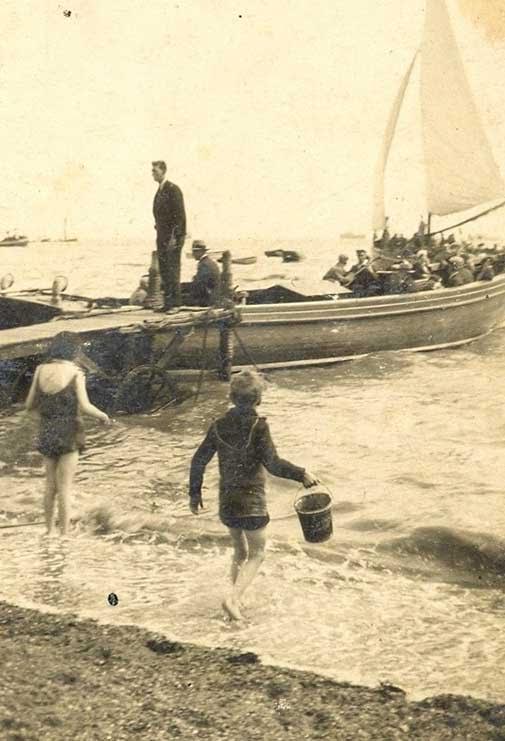- Vol. 02
- Chapter 11

The Other Side
You couldn’t speak English when you arrived. Not much. After you crossed the Channel, queasy with homesickness and seasickness, they brought you to the children’s camp at Harwich and you couldn’t explain to them why you weren’t well.
There were children everywhere – like you – wearing numbers on cords around their necks. There was a man checking the tags as you walked by.
It was February and fog came off the water. The air smelled like coal smoke and salt. You carried your suitcase into one of the cabins. You had the top bunk, a scratchy blanket. The other children were everywhere, and this was where you were going to stay.
There was a dining hall. You were at one of the boy’s tables. They brought out beef soup, bitter black tea, soft white bread. There were hundreds of you.
You had this idea of England and what was going to happen here. But this wasn’t it. The sky was grey and the gulls always screeched. And one by one, the boys were sent to families in Leeds, and Loughborough, and Liverpool. You were not.
Finally, they told you – you were going to Dagenham. There was a big house there, an old man who would look after you and the other boys who were left.
When you walked from the house to the High Street, the kerchiefed ladies and flat-capped men frowned, or smiled stiffly, or looked away. They could see you were one of the refugees. They walked to work at the Ford plant; you went to the technical college each day.
The Other Side
Your teacher spoke to you after class, assured you that unless you gave up German, you would never learn English. So you did it. So you rode the train to the seaside with the old man and the other boys and tried to speak English even though the conversation was limited, false, like a game. And you murmured jokes in German under your breath and swallowed your laugh.
All of you strategized to get your families over – your parents, your grandparents, brothers, sisters, aunts. You pleaded with officials, asked after vacant jobs, tried to persuade teachers.
All this is before the war actually starts, before the first of September when the world stops and everyone holds their breath and then the world rearranges itself. You won’t hear from your parents again. There will be no more child refugees arriving.
But before that, during the day by the sea, you’ll inhale the smack-cold sea air, eye a girl in her swimming costume. You’ll walk with the others. Someone will hand you a cone of chips wrapped in newspaper. The waves will lap against the shore and sink into the shingle. You’ll look out past the pier, across the Channel, imagining what’s on the other side.
